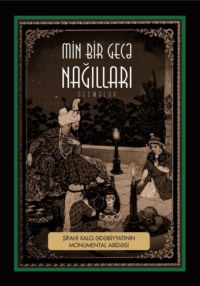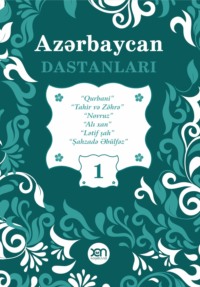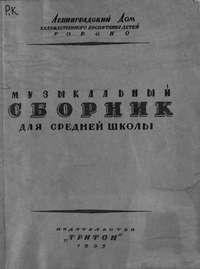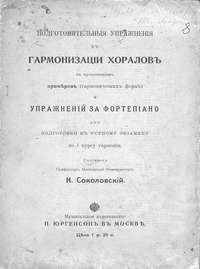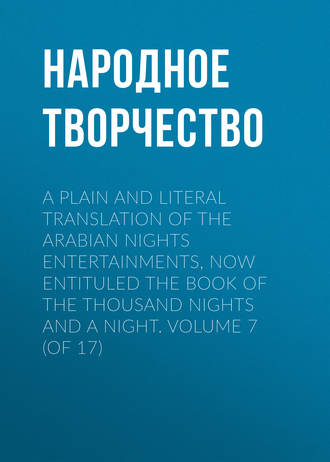 полная версия
полная версияA plain and literal translation of the Arabian nights entertainments, now entituled The Book of the Thousand Nights and a Night. Volume 7 (of 17)
She resumed, It hath reached me, O auspicious King, that the broker, having saluted Ali of Cairo with the salam, asked him the reason of his enchantment and what had befallen him; and he answered by telling him all that had passed, when the broker said to him, “Will not my daughter and the handmaid suffice thee?” but he answered, “Needs must I have Zaynab also.” Now suddenly there came a rap at the door and the maid said, “Who is at the door?” The knocker replied, “Kamar, daughter of Azariah the Jew; say me, is Ali of Cairo with you?” Replied the broker’s daughter, “O thou daughter of a dog! If he be with us, what wilt thou with him? Go down, O maid, and open to her.” So the maid let her in, and when she looked upon Ali and he upon her, he said, “What bringeth thee hither O dog’s daughter?” Quoth she, “I testify that there is no god but the God and I testify that Mohammed is the Apostle of God.” And, having thus Islamised, she asked him, “Do men in the Faith of Al-Islam give marriage portions to women or do women dower men?” Quoth he, “Men endow women.” “Then,” said she, “I come and dower myself for thee, bringing thee, as my marriage-portion, my dress together with the rod and charger and chains and the head of my father, the enemy of thee and the foeman of Allah.” And she threw down the Jew’s head before him. Now the cause of her slaying her sire was as follows. On the night of his turning Ali into a dog, she saw, in a dream, a speaker who said to her, “Become a Moslemah.” She did so; and as soon as she awoke next morning she expounded Al-Islam to her father who refused to embrace the Faith; so she drugged him with Bhang and killed him. As for Ali, he took the gear and said to the broker, “Meet we to-morrow at the Caliph’s Divan, that I may take thy daughter and the handmaid to wife.” Then he set out rejoicing, to return to the barrack of the Forty. On his way he met a sweetmeat seller, who was beating hand upon hand and saying, “There is no Majesty and there is no Might save in Allah, the Glorious, the Great! Folk’s labour hath waxed sinful and man is active only in fraud!” Then said he to Ali, “I conjure thee, by Allah, taste of this confection!” So Ali took a piece and ate it and fell down senseless, for there was Bhang therein; whereupon the sweetmeat-seller seized the dress and the charger and the rest of the gear and thrusting them into the box where he kept his sweetmeats hoisted it up and made off. Presently he met a Kazi, who called to him, saying, “Come hither, O sweetmeat seller!” So he went up to him and setting down his sack laid the tray of sweetmeats upon it and asked, “What dost thou want?” “Halwá and dragées,256” answered the Kazi and, taking some in his hand, said, “Both of these are adulterated.” Then he brought out sweetmeats from his breast-pocket257 and gave them to the sweetmeat-seller, saying, “Look at this fashion; how excellent it is! Eat of it and make the like of it.” So he ate and fell down senseless, for the sweetmeats were drugged with Bhang, whereupon the Kazi bundled him into the sack and made off with him, charger and chest and all, to the barrack of the Forty. Now the Judge in question was Hasan Shuman and the reason of this was as follows. When Ali had been gone some days in quest of the dress and they heard no news of him, Calamity Ahmad said to his men, “O lads, go and seek for your brother Ali of Cairo.” So they sallied forth in quest of him and among the rest Hasan Shuman the Pestilence, disguised in a Kazi’s gear. He came upon the sweetmeat-seller and, knowing him for Ahmad al-Lakit258 suspected him of having played some trick upon Ali; so he drugged him and did as we have seen. Meanwhile, the other Forty fared about the streets and highways making search in different directions, and amongst them Ali Kitf al-Jamal, who espying a crowd, made towards the people and found the Cairene Ali lying drugged and senseless in their midst. So he revived him and he came to himself and seeing the folk flocking around him asked, “Where am I?” Answered Ali Camel-shoulder and his comrades, “We found thee lying here drugged but know not who drugged thee.” Quoth Ali, “’Twas a certain sweetmeat-seller who drugged me and took the gear from me; but where is he gone?” Quoth his comrades, “We have seen nothing of him; but come, rise and go home with us.” So they returned to the barrack, where they found Ahmad al-Danaf, who greeted Ali and enquired if he had brought the dress. He replied, “I was coming hither with it and other matters, including the Jew’s head, when a sweetmeat-seller met me and drugged me with Bhang and took them from me.” Then he told him the whole tale ending with, “If I come across that man of goodies again, I will requite him.” Presently Hasan Shuman came out of a closet and said to him, “Hast thou gotten the gear, O Ali?” So he told him what had befallen him and added, “If I know whither the rascal is gone and where to find the knave, I would pay him out. Knowest thou whither he went?” Answered Hasan, “I know where he is,” and opening the door of the closet, showed him the sweetmeat-seller within, drugged and senseless. Then he aroused him and he opened his eyes and finding himself in presence of Mercury Ali and Calamity Ahmad and the Forty, started up and said, “Where am I and who hath laid hands on me?” Replied Shuman, “’Twas I laid hands on thee;” and Ali cried, “O perfidious wretch, wilt thou play thy pranks on me?” And he would have slain him: but Hasan said to him, “Hold thy hand for this fellow is become thy kinsman.” “How my kinsman?” quoth Ali; and quoth Hasan, “This is Ahmad al-Lakit son of Zaynab’s sister.” Then said Ali to the prisoner, “Why didst thou thus, O Lakit?” and he replied, “My grandmother, Dalilah the Wily, bade me do it; only because Zurayk the fishmonger foregathered with the old woman and said:—Mercury Ali of Cairo is a sharper and a past master in knavery, and he will certainly slay the Jew and bring hither the dress. So she sent for me and said to me, O Ahmad, dost thou know Ali of Cairo? Answered I:—Indeed I do and ’twas I directed him to Ahmad al-Danaf’s lodging when he first came to Baghdad. Quoth she:—Go and set thy nets for him, and if he have brought back the gear, put a cheat on him and take it from him. So I went round about the highways of the city, till I met a sweetmeat-seller and buying his clothes and stock-in-trade and gear for ten dinars, did what was done.” Thereupon quoth Ali, “Go back to thy grandmother and Zurayk, and tell them that I have brought the gear and the Jew’s head and say to them:—Meet me to-morrow at the Caliph’s Divan, there to receive Zaynab’s dowry.” And Calamity Ahmad rejoiced in this and said, “We have not wasted our pains in rearing thee, O Ali!” Next morning Ali took the dress, the charger, the rod and the chains of gold, together with the head of Azariah the Jew mounted on a pike, and went up, accompanied by Ahmad al-Danaf and the Forty, to the Divan, where they kissed ground before the Caliph–And Shahrazad perceived the dawn of day and ceased saying her permitted say.
Now when it was the Seven Hundred and Nineteenth Night,
She said, It hath reached me, O auspicious King, that when Ali the Cairene went up to the Caliph’s Divan, accompanied by his uncle Ahmad al-Danaf and his lads they kissed ground before the Caliph who turned and seeing a youth of the most valiant aspect, enquired of Calamity Ahmad concerning him and he replied, “O Commander of the Faithful, this is Mercury Ali the Egyptian captain of the brave boys of Cairo, and he is the first of my lads.” And the Caliph loved him for the valour that shone from between his eyes, testifying for him and not against him. Then Ali rose; and, casting the Jew’s head down before him, said, “May thine every enemy be like this one, O Prince of True Believers!” Quoth Al-Rashid, “Whose head is this?”; and quoth Ali, “’Tis the head of Azariah the Jew.” “Who slew him?” asked the Caliph. So Ali related to him all that had passed, from first to last, and the Caliph said, “I had not thought thou wouldst kill him, for that he was a sorcerer.” Ali replied, “O Commander of the Faithful, my Lord made me prevail to his slaughter.” Then the Caliph sent the Chief of Police to the Jew’s palace, where he found him lying headless; so he laid the body on a bier,259 and carried it to Al-Rashid, who commanded to burn it. Whereat, behold, up came Kamar and kissing the ground before the Caliph, informed him that she was the daughter of Jew Azariah and that she had become a Moslemah. Then she renewed her profession of Faith before the Commander of the Faithful and said to him “Be thou my intercessor with Sharper Ali that he take me to wife.” She also appointed him her guardian to consent to her marriage with the Cairene, to whom he gave the Jew’s palace and all its contents, saying, “Ask a boon of me.” Quoth Ali, “I beg of thee to let me stand on thy carpet and eat of thy table;” and quoth the Caliph, “O Ali, hast thou any lads?” He replied, “I have forty lads; but they are in Cairo.” Rejoined the Caliph, “Send to Cairo and fetch them hither,” presently adding, “But, O Ali, hast thou a barrack for them?” “No,” answered Ali; and Hasan Shuman said, “I make him a present of my barrack with all that is therein, O Commander of the Faithful.” However, the Caliph retorted, saying, “Thy lodging is thine own, O Hasan;” and he bade his treasurer give the court architect ten thousand dinars, that he might build Ali a hall with four daïses and forty sleeping-closets for his lads. Then said he, “O Ali, hast thou any further wish, that we may command its fulfilment?”; and said Ali, “O King of the age, be thou my intercessor with Dalilah the Wily that she give me her daughter Zaynab to wife and take the dress and gear of Azariah’s girl in lieu of dower.” Dalilah accepted the Caliph’s intercession and accepted the charger and dress and what not, and they drew up the marriage contracts between Ali and Zaynab and Kamar, the Jew’s daughter and the broker’s daughter and the handmaid. Moreover, the Caliph assigned him a solde with a table morning and evening, and stipends and allowances for fodder; all of the most liberal. Then Ali the Cairene fell to making ready for the wedding festivities and, after thirty days, he sent a letter to his comrades in Cairo, wherein he gave them to know of the favours and honours which the Caliph had bestowed upon him and said, “I have married four maidens and needs must ye come to the wedding.” So, after a reasonable time the forty lads arrived and they held high festival; he homed them in his barrack and entreated them with the utmost regard and presented them to the Caliph, who bestowed on them robes of honour and largesse. Then the tiring-women displayed Zaynab before Ali in the dress of the Jew’s daughter, and he went in unto her and found her a pearl unthridden and a filly by all save himself unridden. Then he went in unto the three other maidens and found them accomplished in beauty and loveliness. After this it befel that Ali of Cairo was one night on guard by the Caliph who said to him, “I wish thee O Ali, to tell me all that hath befallen thee from first to last with Dalilah the Wily and Zaynab the Coney-catcher and Zurayk the Fishmonger.” So Ali related to him all his adventures and the Commander of the Faithful bade record them and lay them up in the royal muniment-rooms. So they wrote down all that had befallen him and kept it in store with other histories for the people of Mohammed the Best of Men. And Ali and his wives and comrades abode in all solace of life, and its joyance, till there came to them the Destroyer of Delights and Sunderer of Societies; and Allah (be He extolled and exalted!) is All-knowing!260 And also men relate the tale of
“Les capotes mélancoliquesQui pendent chez les gros Millan (?)S’enflent d’elles-mêmes, lubriques,Et dechargent en se gonflant.”Passage Satyrique.Also in Louis Prolat:—
“Il fuyait, me laissant une capote au cul.”The articles are now of two kinds mostly of baudruche (sheep’s gut) and a few of caoutchouc. They are made almost exclusively in the faubourgs of Paris, giving employment to many women and young girls; Grenelle turns out the baudruche and Grenelle and Lilas the India-rubber article; and of the three or four makers M. Deschamps is best known. The sheep’s gut is not joined in any way but of single piece as it comes from the animal after, of course, much manipulation to make it thin and supple; the inferior qualities are stuck together at the sides. Prices vary from 4½ to 36 francs per gross. Those of India-rubber are always joined at the side with a solution especially prepared for the purpose. I have also heard of fish-bladders but can give no details on the subject. The Cundum was unknown to the ancients of Europe although syphilis was not: even prehistoric skeletons show traces of its ravages.
ARDASHIR AND HAYAT AL-NUFUS. 261
There was once in the city of Shíráz a mighty King called Sayf al-A’azam Shah, who had grown old, without being blessed with a son. So he summoned the physicists and physicians and said to them, “I am now in years and ye know my case and the state of the kingdom and its ordinance; and I fear for my subjects after me; for that up to this present I have not been vouchsafed a son.” Thereupon they replied, “We will compound thee a somewhat of drugs wherein shall be efficacy, if it please Almighty Allah!” So they mixed him drugs, which he used and knew his wife carnally, and she conceived by leave of the Most High Lord, who saith to a thing, “Be,” and it becometh. When her months were accomplished, she gave birth to a male child like the moon, whom his father named Ardashir,262 and he grew up and throve and applied himself to the study of learning and letters, till he attained the age of fifteen. Now there was in Al-Irak a King called Abd al-Kádir who had a daughter, by name Hayát al-Nufús, and she was like the rising full moon; but she had an hatred for men and the folk very hardly dared name mankind in her presence. The Kings of the Chosroës had sought her in marriage of her sire; but, when he spoke with her thereof, she said, “Never will I do this; and if thou force me thereto, I will slay myself.” Now Prince Ardashir heard of her fame and fell in love with her and told his father who, seeing his case, took pity on him and promised him day by day that he should marry her. So he despatched his Wazir to demand her in wedlock, but King Abd al-Kadir refused, and when the Minister returned to King Sayf al-A’azam and acquainted him with what had befallen his mission and the failure thereof, he was wroth with exceeding wrath and cried, “Shall the like of me send to one of the Kings on a requisition and he accomplish it not?” Then he bade a herald make proclamation to his troops, bidding them bring out the tents and equip them for war with all diligence, though they should borrow money for the necessary expenses; and he said, “I will on no wise turn back, till I have laid waste King Abd al-Kadir’s dominions and slain his men and plundered his treasures and blotted out his traces!” When the report of this reached Ardashir he rose from his carpet-bed, and going in to his father, kissed ground263 between his hands and said, “O mighty King, trouble not thyself with aught of this thing”–And Shahrazad perceived the dawn of day and ceased to say her permitted say.
Now when it was the Seven Hundred and Twentieth Night,She continued, It hath reached me, O auspicious King, that when report of this reached the Prince he went in to his sire the King and, kissing ground between his hands, said, “O mighty King, trouble not thy soul with aught of this thing and levy not thy champions and armies neither spend thy monies. Thou art stronger than he, and if thou loose upon him this thy host, thou wilt lay waste his cities and dominions and spoil his good and slay his strong men and himself; but when his daughter shall come to know what hath befallen her father and his people by reason of her, she will slay herself, and I shall die on her account; for I can never live after her; no, never.” Asked the King, “And what then thinkest thou to do, O my son?” and the Prince answered, “I will don a merchant’s habit and cast about how I may win to the Princess and compass my desire of her.” Quoth Sayf al-A’azam, “Art thou determined upon this?”; and quoth the Prince, “Yes, O my sire;” whereupon the King called to his Wazir, and said to him, “Do thou journey with my son, the core of my heart, and help him to win his will and watch over him and guide him with thy sound judgment, for thou standest to him even in my stead.” “I hear and obey,” answered the Minister; and the King gave his son three hundred thousand dinars in gold and great store of jewels and precious stones and goldsmiths’ ware and stuffs and other things of price. Then Prince Ardashir went in to his mother and kissed her hands and asked her blessing. She blessed him and, forthright opening her treasures, brought out to him necklaces and trinkets and apparel and all manner of other costly objects hoarded up from the time of the bygone Kings, whose price might not be evened with coin. Moreover, he took with him of his Mamelukes and negro-slaves and cattle all that he needed for the road and clad himself and the Wazir and their company in traders’ gear. Then he farewelled his parents and kinsfolk and friends; and, setting out, fared on over wolds and wastes all hours of the day and watches of the night; and whenas the way was longsome upon him he improvised these couplets:—
My longing bred of love with mine unease for ever grows;Nor against all the wrongs of time one succourer arose:When Pleiads and the Fishes show in sky the rise I watch,As worshipper within whose breast a pious burning glows:For Star o’ Morn I speer until at last when it is seen,I’m madded with my passion and my fancy’s woes and throes:I swear by you that never from your love have I been loosed;Naught am I save a watcher who of slumber nothing knows!Though hard appear my hope to win, though languor aye increase,And after thee my patience fails and ne’er a helper shows;Yet will I wait till Allah shall be pleased to join our loves;I’ll mortify the jealous and I’ll mock me of my foes.When he ended his verse he swooned away and the Wazir sprinkled rose-water on him, till the Prince came to himself, when the Minister said to him, “O King’s son, possess thy soul in patience; for the consequence of patience is consolation, and behold, thou art on the way to whatso thou wishest.” And he ceased not to bespeak him fair and comfort him till his trouble subsided; and they continued their journey with all diligence. Presently, the Prince again became impatient of the length of the way and bethought him of his beloved and recited these couplets:—
Longsome is absence, restlessness increaseth and despite;And burn my vitals in the blaze my love and longings light:Grows my hair gray from pains and pangs which I am doomèd bearFor pine, while tear-floods stream from eyes and sore offend my sight:I swear, O Hope of me, O End of every wish and will,By Him who made mankind and every branch with leafage dight,A passion-load for thee, O my Desire, I must endure,And boast I that to bear such load no lover hath the might.Question the Night of me and Night thy soul shall satisfyMine eyelids never close in sleep throughout the livelong night.Then he wept with sore weeping and ’plained of that he suffered for stress of love-longing; but the Wazir comforted him and spoke him fair, promising him the winning of his wish; after which they fared on again for a few days, when they drew near to the White City, the capital of King Abd al-Kadir, soon after sunrise. Then said the Minister to the Prince, “Rejoice, O King’s son, in all good; for see, yonder is the White City, that which thou seekest.” Whereat the Prince rejoiced with exceeding joy and recited these couplets:—
My friends, I yearn in heart distraught for him;Longing abides and with sore pains I brim:I mourn like childless mother, nor can findOne to console me when the light grows dim;Yet when the breezes blow from off thy land,I feel their freshness shed on heart and limb;And rail mine eyes like water-laden clouds,While in a tear-sea shed by heart I swim.Now when they entered the White City they asked for the Merchants’ Khan, a place of moneyed men; and when shown the hostelry they hired three magazines and on receiving the keys264 they laid up therein all their goods and gear. They abode in the Khan till they were rested, when the Wazir applied himself to devise a device for the Prince,–And Shahrazad perceived the dawn of day and ceased saying her permitted say.
Now when it was the Seven Hundred and Twenty-first Night,She pursued, It hath reached me, O auspicious King, that the Prince and the Minister alighted at the Khan and lodged their goods in the ground-floor magazines and there settled their servants. Then they tarried awhile till they had rested when the Wazir arose and applied himself to devise a device for the Prince, and said to him, “I have bethought me of somewhat wherein, methinks, will be success for thee, so it please Almighty Allah.” Quoth Ardashir, “O thou Wazir of good counsel, do what cometh to thy mind, and may the Lord direct thy rede aright!” Quoth the Minister, “I purpose to hire thee a shop in the market-street of the stuff-sellers and set thee therein; for that all, great and small, have recourse to the bazar and, meseems, when the folk see thee with their own eyes sitting in the shop their hearts will incline to thee and thou wilt thus be enabled to attain thy desire, for thou art fair of favour and souls incline to thee and sight rejoiceth in thee.” The other replied, “Do what seemeth good to thee.” So the Wazir forthright began to robe the Prince and himself in their richest raiment and, putting a purse of a thousand dinars in his breast-pocket, went forth and walked about the city, whilst all who looked upon them marvelled at the beauty of the King’s son, saying, “Glory be to Him who created this youth ’of vile water’265! Blessed be Allah excellentest of Creators!” Great was the talk anent him and some said, “This is no mortal, ’this is naught save a noble angel’”;266 and others, “Hath Rizwán, the doorkeeper of the Eden-garden, left the gate of Paradise unguarded, that this youth hath come forth?” The people followed them to the stuff-market, where they entered and stood, till there came up to them an old man of dignified presence and venerable appearance, who saluted them, and they returned his salam. Then the Shaykh said to them, “O my lords, have ye any need, that we may have the honour of accomplishing?”; and the Wazir asked him, “Who art thou, O elder?” He answered, “I am the Overseer of the market.” Quoth the Wazir, “Know then, O Shaykh, that this youth is my son and I wish to hire him a shop in the bazar, that he may sit therein and learn to sell and buy and take and give, and come to ken merchants’ ways and habits.” “I hear and I obey,” replied the Overseer and brought them without stay or delay the key of a shop, which he caused the brokers sweep and clean. And they did his bidding. Then the Wazir sent for a high mattress, stuffed with ostrich-down, and set it up in the shop, spreading upon it a small prayer-carpet, and a cushion fringed with broidery of red gold. Moreover he brought pillows and transported thither so much of the goods and stuffs that he had brought with him as filled the shop. Next morning the young Prince came and opening the shop, seated himself on the divan, and stationed two Mamelukes, clad in the richest of raiment before him and two black slaves of the goodliest of the Abyssinians in the lower part of the shop. The Wazir enjoined him to keep his secret from the folk, so thereby he might find aid in the winning of his wishes; then he left him and charging him to acquaint him with what befel him in the shop, day by day returned to the Khan. The Prince sat in the shop till night as he were the moon at its fullest, whilst the folk, hearing tell of his comeliness, flocked to the place, without errand, to gaze on his beauty and loveliness and symmetry and perfect grace and glorify the Almighty who created and shaped him, till none could pass through that bazar for the excessive crowding of the folk about him. The King’s son turned right and left, abashed at the throng of people that stared at him, hoping to make acquaintance with some one about the court, of whom he might get news of the Princess; but he found no way to this, wherefore his breast was straitened. Meanwhile, the Wazir daily promised him the attainment of his desire and the case so continued for a time till, one morning, as the youth sat in the shop, there came up an old woman of respectable semblance and dignified presence clad in raiment of devotees267 and followed by two slave-girls like moons. She stopped before the shop and, having considered the Prince awhile, cried, “Glory be to God who fashioned that face and perfected that figure!” Then she saluted him and he returned her salam and seated her by his side. Quoth she, “Whence cometh thou, O fair of favour?”; and quoth he, “From the parts of Hind, O my mother; and I have come to this city to see the world and look about me.” “Honour to thee for a visitor! What goods and stuffs hast thou? Show me something handsome, fit for Kings.” “If thou wish for handsome stuffs, I will show them to thee; for I have wares that beseem persons of every condition.” “O my son, I want somewhat costly of price and seemly to sight; brief, the best thou hast.” “Thou must needs tell me for whom thou seekest it, that I may show thee goods according to the rank of the requirer.” “Thou speakest sooth, O my son,” said she, “I want somewhat for my mistress Hayat al-Nufus, daughter of Abd al-Kadir, lord of this land and King of this country.” Now when Ardashir heard his mistress’s name, his reason flew for joy and his heart fluttered and he gave no order to slave or servant, but, putting his hand behind him, pulled out a purse of an hundred dinars and offered it to the old woman, saying, “This is for the washing of thy clothes.” Then he again put forth his hand and brought out of a wrapper a dress worth ten thousand dinars or more and said to her, “This is of that which I have brought to your country.” When the old woman saw it, it pleased her and she asked, “What is the price of this dress, O perfect in qualities?” Answered he, “I will take no price for it!” whereupon she thanked him and repeated her question; but he said, “By Allah, I will take no price for it. I make thee a present of it, an the Princess will not accept it and ’tis a guest-gift from me to thee. Alhamdolillah—Glory be to God—who hath brought us together, so that, if one day I have a want, I shall find thee a helper to me in winning it!” She marvelled at the goodliness of his speech and the excess of his generosity and the perfection of his courtesy and said to him, “What is thy name, O my lord?” He replied, “My name is Ardashir;” and she cried, “By Allah this is a rare name! Therewith are Kings’ sons named, and thou art in a guise of the sons of the merchants!” Quoth he, “Of the love my father bore me, he gave me this name, but a name signifieth naught;” and quoth she in wonder, “O my son, take the price of thy goods.” But he swore that he would not take aught. Then the old lady said to him, “O my dear one, Truth (I would have thee know) is the greatest of all things and thou hadst not dealt thus generously by me but for a special reason: so tell me thy case and thy secret thought; belike thou hast some wish to whose winning I may help thee.” Thereupon he laid his hand in hers and, after exacting an oath of secrecy, told her the whole story of his passion for the Princess and his condition by reason thereof. The old woman shook her head and said, “True; but O my son, the wise say, in the current adage:—An thou wouldest be obeyed, abstain from ordering what may not be made; and thou, my son, thy name is Merchant, and though thou hadst the keys of the Hidden Hoards, yet wouldst thou be called naught but Merchant. An thou wouldst rise to high rank, according to thy station, then seek the hand of a Kazi’s daughter or even an Emir’s; but why, O my son, aspirest thou to none but the daughter of the King of the age and the time, and she a clean maid, who knoweth nothing of the things of the world and hath never in her life seen anything but her palace wherein she dwelleth? Yet, for all her tender age, she is intelligent, shrewd, vivacious, penetrating, quick of wit, sharp of act and rare of rede: her father hath no other child and she is dearer to him than his life and soul. Every morning he cometh to her and giveth her good-morrow, and all who dwell in the palace stand in dread of her. Think not, O my son, that any dare bespeak her with aught of these words; nor is there any way for me thereto. By Allah, O my son, my heart and vitals love thee and were it in my power to give thee access to her, I would assuredly do it; but I will tell thee somewhat, wherein Allah may haply appoint the healing of thy heart, and will risk life and goods for thee, till I win thy will for thee.” He asked, “And what is that, O my mother”; and she answered, “Seek of me the daughter of a Wazir or an Emir, and I will grant thy request; but it may not be that one should mount from earth to heaven at one bound.” When the Prince heard this, he replied to her with courtesy and sense, “O my mother, thou art a woman of wit and knowest how things go. Say me doth a man, when his head irketh him, bind up his hand?” Quoth she, “No, by Allah, O my son”; and quoth he, “Even so my heart seeketh none but her and naught slayeth me but love of her. By Allah, I am a dead man, and I find not one to counsel me aright and succour me! Allah upon thee, O my mother, take pity on my strangerhood and the streaming of my tears!”–And Shahrazad perceived the dawn of day and ceased to say her permitted say.


